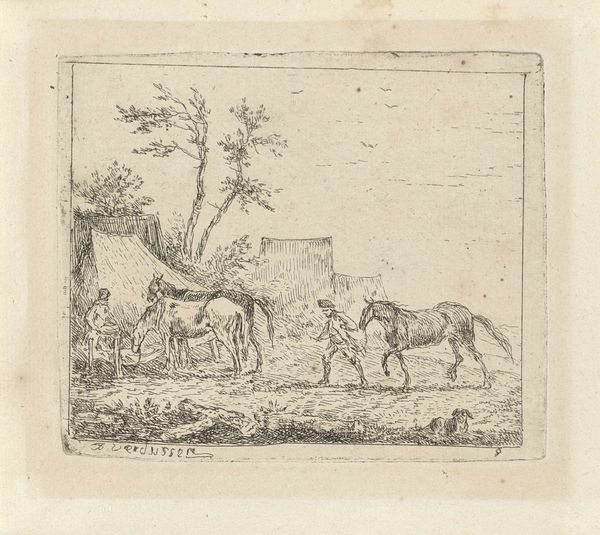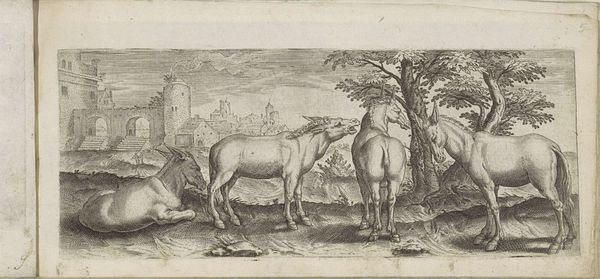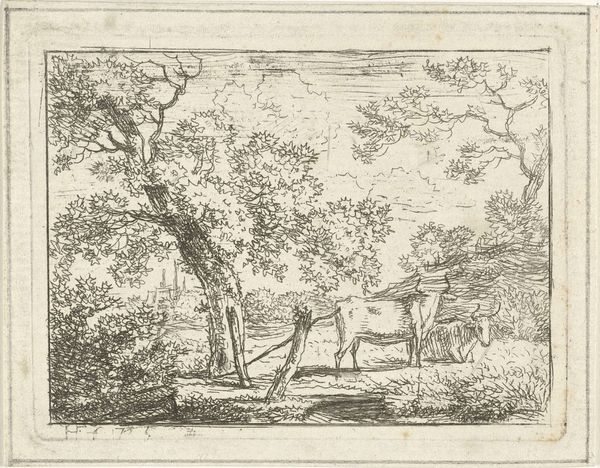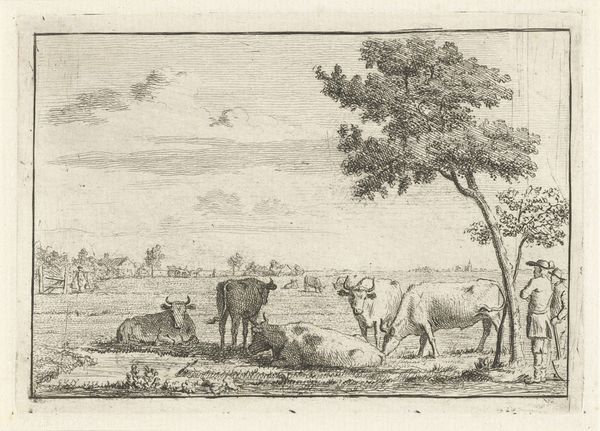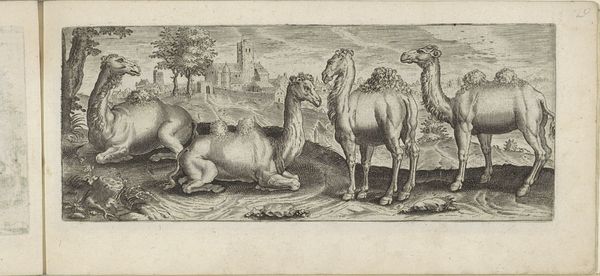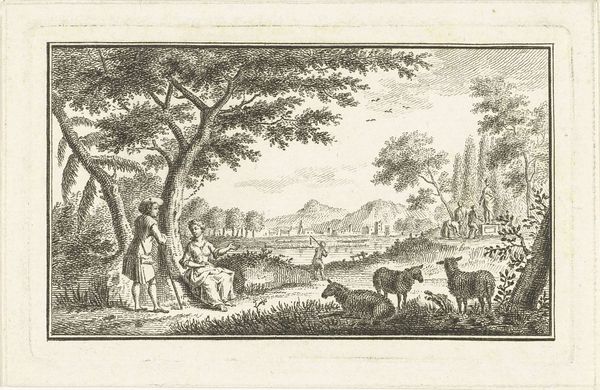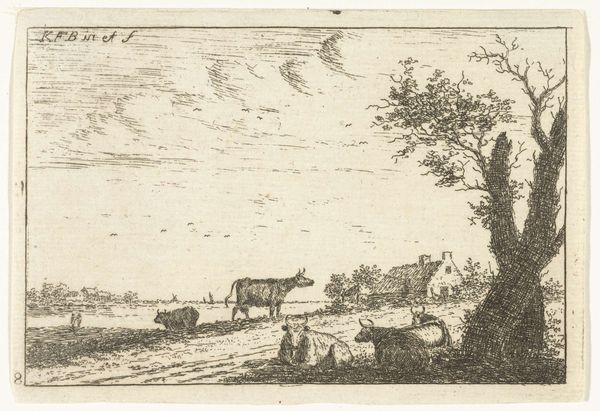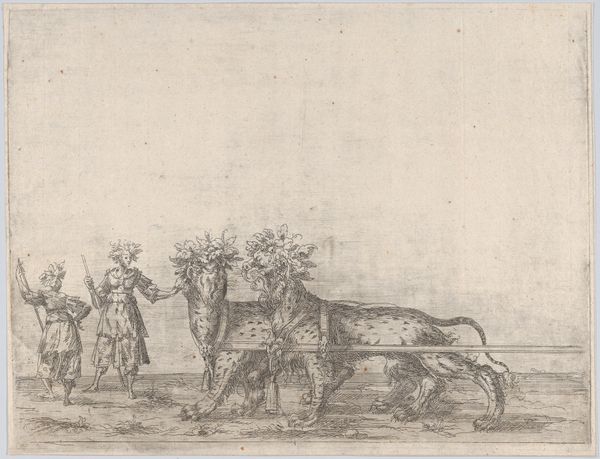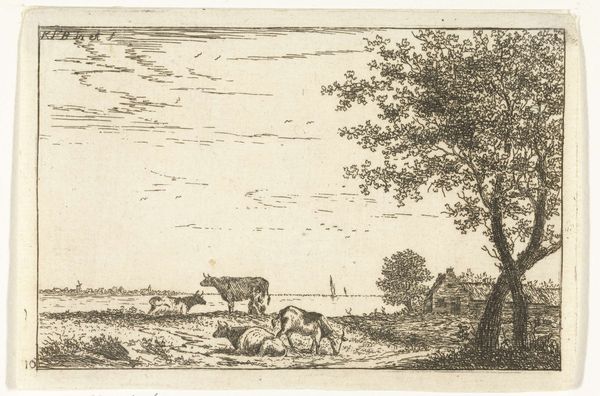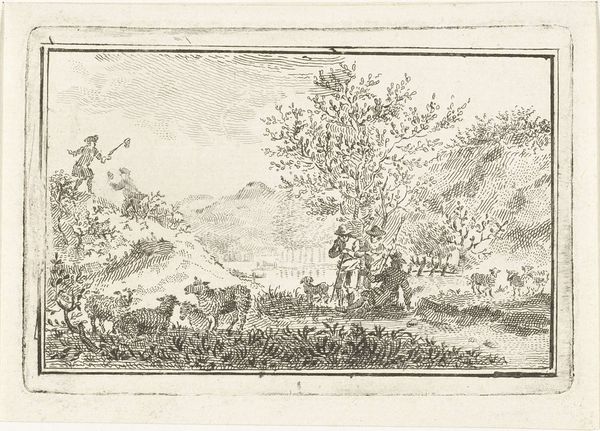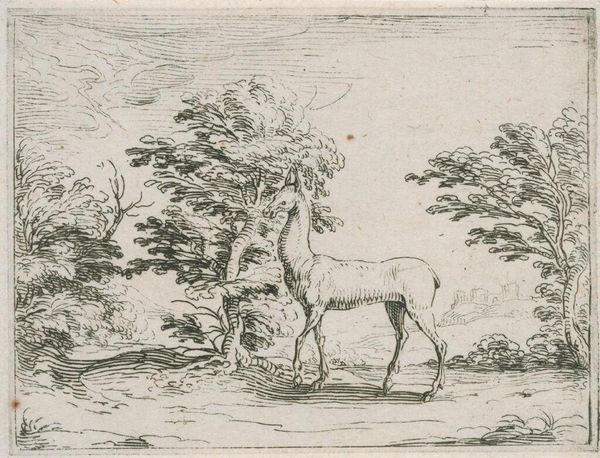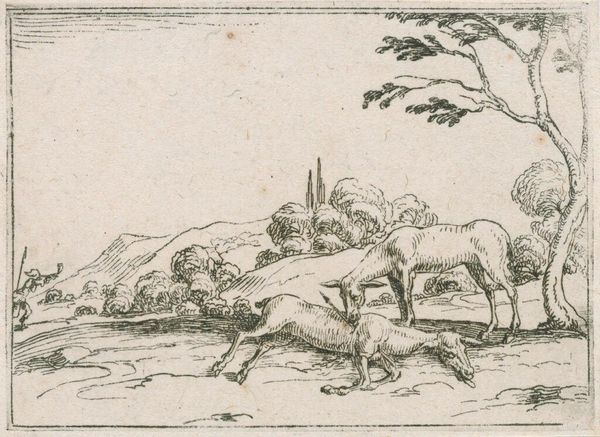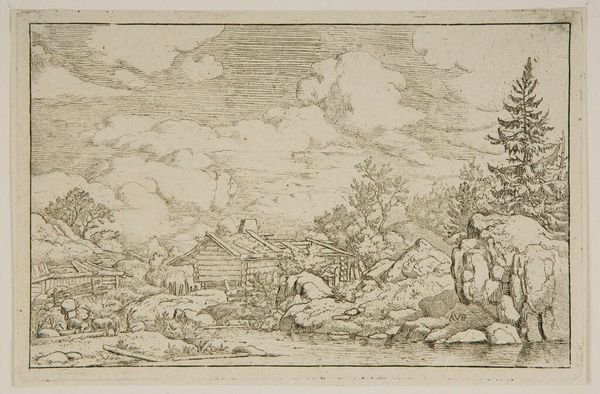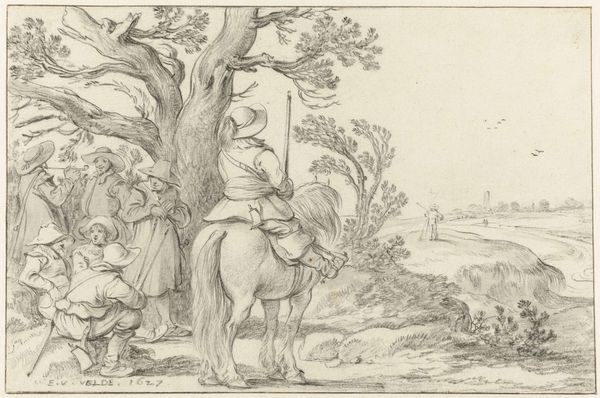
drawing, ink
#
drawing
#
landscape
#
ink
#
realism
Dimensions: width 145 mm, height 66 mm
Copyright: Rijks Museum: Open Domain
Pieter de Goeje made these two landscapes with cows as an etching. They offer us a window into the visual culture of the Netherlands in the early 19th century. Dutch art has a long tradition of landscape imagery, but these scenes are not simply neutral depictions of the countryside. Look at the cows, for instance. These animals were central to the Dutch economy, and they were often used as symbols of national pride and prosperity. What do we make of the artist’s decision to twin them with images of local churches and windmills? Perhaps the artist is inviting us to think about the links between the rural economy, the landscape, and local forms of life. As historians, we can research the visual codes and cultural references that would have been familiar to viewers at the time. These landscapes are valuable precisely because they are so rooted in a particular time and place.
Comments
No comments
Be the first to comment and join the conversation on the ultimate creative platform.
